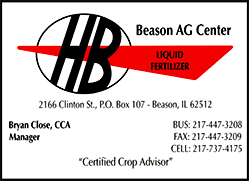|
 But transferring accounts takes planning, especially for those who
use services like direct deposit or automatic bill pay. But transferring accounts takes planning, especially for those who
use services like direct deposit or automatic bill pay.
Here are the steps to follow when opening a new account:
1. Research options to find a new institution that offers the
services you need. Most credit unions have eligibility
requirements, but they're usually not hard to meet. Find a local
credit union you qualify for by visiting
www.asmarterchoice.org
or www.culookup.com.
To find a community bank, visit the Independent Community Bankers of
America website,
www.icba.org/consumer/banklocator.
Online banks, which typically have lower fees and offer higher
interest rates because they're not supporting branches, are another
option.

2. Open an account at the new institution and deposit just enough to
meet minimum balance requirements. Order checks, deposit slips and
debit cards.
3. If you've signed up for paperless banking on your old accounts,
print out or otherwise save any statements you might need for tax
purposes or record keeping.
4. Ask your employer how quickly direct deposit can be changed over.
Make sure other potential deposits, like insurance or flexible
spending account reimbursements, are transferred.
[to top of second column]
 |

5. Enter the companies and service providers you pay electronically
into your new bank account. Consider sending small trial payments to
each. This can also help you gauge how fast your new bank's bill pay
works.

6. Transfer any automatic or recurring bill payments from the old
account to the new one. Be sure to review several months of
statements from your old bank to make sure you don't forget about
any automatic payments; utility bills or insurance premiums may be
bimonthly or quarterly.
7. Leave a small amount of cash in the old account for a few weeks
to allow any outstanding items to clear.
8. Close your account at your old financial institution and make
sure to obtain written confirmation that your account is closed.
For more details on how to switch financial institutions, see tips
from the Consumers Union at
http://bit.ly/glWqfr.
[Associated
Press]
Copyright 2011 The Associated
Press. All rights reserved. This material may not be published,
broadcast, rewritten or redistributed.
 |